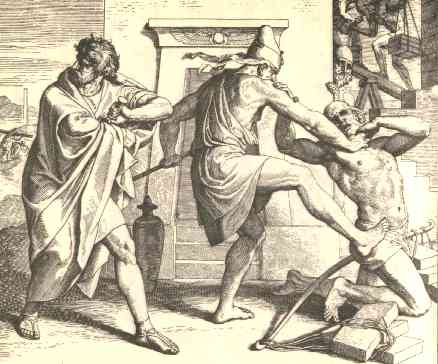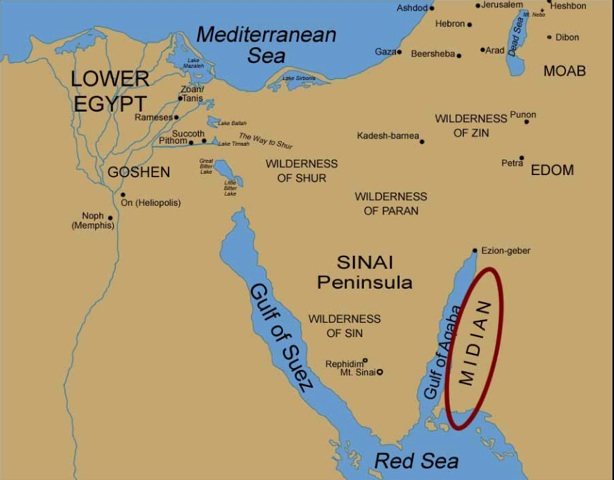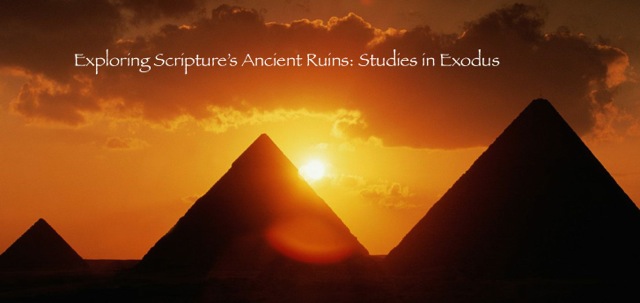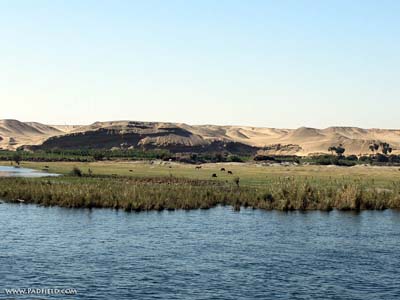©1998-2014
Fellowship at Cross Creek
Life of Moses
Lesson 4: The Child Grows Up, but the Young Man Runs…
Ex 2:11-25
12/1/2 (edited and updated… 8/24/14)
Introduction… Most of us would all love for our children to have these perfect loves, without devstating pain, loss or sorrow, but that’s not the reality…or it’s not been the reality for us or most of our parents, and it will NOT be the reality for our kids or grandkids! The reality is that there will be devastating moments, despite the best intentions of our parenting. The real question it seems is: are we or are our children resilient? Spiritually resilient? Like a Timex watch advertizing slogan of many years ago, Do we take a licking and keep on ticking?
Last week, I had to break a young teenager’s heart, and then I had to attempt to rebuild them. I think it worked. I had to tell them truth I would have rather NOT shared, and watch it crush them, but as they were crushed…and I could see all the body language to that extent…I said that they had two choices…to go through this with or without God. They replied that it seemed pointless. I loved their answer because it was honest. I then told them that this life is not heaven, and it’s not hell. It’s a hybrid. Therefore the choice is to try to do it with or without God. For me, God gives me hope to fight on. To accept the things that I cannot change, the courage to change the things I can and the wisdom to know the difference. Ultimately, they left my presence with smiles, but they have a long and difficult journey ahead of them. My goal…reinforce God in that difficult journey—their only hope and salvation!
So how do we teach our kids resiliency, especially without pain? It doesn’t happen! Pain, loss, failure, disapointment, injustice are all requrired to learn life’s required resiliency. So how do we reconcile the two? How much do we go out of the way to protect our children? Afterall, when thy are young, isn’t that our job? Yes, it is. But as they grow, there is a wise, gradual and certain release that must take place, a release that is not without its risks. And then there comes, observation over rescue. How are they responding? Do they have the truths and skills to pick themselves back up and never give up…that is, with respect to life? Do they understand that when they are knocked out of the saddle that life’s real lesson or salvation, is constructing and depending upon one’s faith or trust in God as life’s scaffolding in rebuilding one’s God-inspired hopes and dreams. Such was the case with Moses. Forced to make a difficult choice, he rescues one mistreated person in his own human power. Confronted with the knowledge of his secret, his confidence in himself fails, and so Moses runs. But thankfully, God is not finished with his servant, as he is not finished with us, after our fleshly failures and despite the best of intentions. Rather, in time, God rebuilds his broken servants to do the seemingly difficult or downright impossible in his strength and power.
Might I challege you…might I challenge all of us to embrace, not only our own fleshly failures, but our children’s, not merely as failures, but as Spiritual opportunities, over time and via the Spirit, power, truth and love of God, to do something infinitely better than we could have ever imagined? With God all things are possible! Amen!
Your servant,
Joe
Note: We have 15 verses here. You may need to fly through the reading and who, where, with part of the study because there are a few more verses. Some great principles, potential for some good applications. Remember to challenge them to share some of their struggles so they can make the applicational bridge.
Pray
Read the Passage three times…
Ask questions…
11 One day, after Moses had grown up, he went out to where his own people were and watched them at their hard labor. He saw an Egyptian beating a Hebrew, one of his own people.
Time flies fast. How many years have passed? What was Moses’ life like? Was he privileged? Did he ever see his family? Did he frequent the Pharaoh very much? Did the Pharaoh know he was an adopted Hebrew “puppy”? Did he enjoy his upbringing? Did he know everything about Egyptian culture? Was he being groomed to be an important official in Egypt? Was he well liked? Respected? What was his relationship with his adopted mother like? Did he have an adopted father?
Why did he go out to where his own people were laboring? Did he feel guilt? His actions seemed to suggest so. So obviously he knew he was Hebrew? What does Hebrew mean? Is this the same as an Israelite? Israel was the new name God gave Jacob when he wrestled with him, but where did “Hebrew” come from? What does it mean? What does Israel mean? Why use “Hebrew” over “Israelite”?
12 Glancing this way and that and seeing no one, he killed the Egyptian and hid him in the sand.
Did he try telling the Egyptian not to beat the Hebrew? Why was the Egyptian beating the Hebrew? Had he not done his job right? Why was there no one else around? Was there not something else Moses could do? Or was this because he felt so much guilt, having lived a privileged lifestyle, while so many others his age had been mercilessly killed? He had to be asking, “Why me?” So was this an over reaction to what was being done? Had it just built up in him for so long? Can you see him beating the Egyptian to death? Can you see Moses hurriedly digging a place to bury the Egyptian? Why sand? Was there no dirt around? Were we not near the Nile River? What is the geological terrain around the city they were building or working at?
13 The next day he went out and saw two Hebrews fighting. He asked the one in the wrong, “Why are you hitting your fellow Hebrew?”
Why does he go back? Is he trying to watch out for his people? Why were they fighting? How is it that Moses just happened upon these two men? Same general location? Moses definitely senses a loyalty for his people. At this point he is trying to help his people in his flesh—the murder, now the role of the peacemaker.
14 The man said, “Who made you ruler and judge over us? Are you thinking of killing me as you killed the Egyptian?” Then Moses was afraid and thought, “What I did must have become known.”
How had word gotten out and around so quick? Were people thinking that Moses could be their deliverer? A savior? A defender? But Moses is like all the rest of us, he still has his fears. As long as he could do something without anyone knowing, he was brave. Now, fearing the retribution of Pharaoh he is not so brave?
15 When Pharaoh heard of this, he tried to kill Moses, but Moses fled from Pharaoh and went to live in Midian, where he sat down by a well.
Word spread fast. How did Moses’ adopted mother feel about all this? Was she still alive? How did Moses get away from Pharaoh? How did he not get caught? Where is Midian? Near the Promised Land? Why Midian? We have seen the well theme several times in Genesis, both with Abraham’s servant when he went to look for Isaac a wife and Jacob as he fled Esau. Wells must have been very important places in the ancient Middle East due to the scarcity of water.
16 Now a priest of Midian had seven daughters, and they came to draw water and fill the troughs to water their father’s flock.
Good priest or one that worshiped another god or religion? Priests could own flocks? Where were the men to protect these women? Was this a safe place?
17 Some shepherds came along and drove them away, but Moses got up and came to their rescue and watered their flock.
Some things never change. The bigger and stronger shove the weaker and smaller around. The white knight comes to the rescue. He does what is fair and right. How hard was it to rescue these gals and what did he have to do? Was there a fight? Did he just get them back their turn? Were all the sheep getting mixed up? How large of a flock are we talking about? How large a water hole or well? Did one have to raise up a bucket and fill a trough? How many times?
18 When the girls returned to Reuel their father, he asked them, “Why have you returned so early today?”
Why were they able to water the flock so much faster than normal? Was it because Moses was stronger? Did the father expect the girls to be shoved to the back of the line?
19 They answered, “An Egyptian rescued us from the shepherds. He even drew water for us and watered the flock.”
They seem to indicate that their father had knowledge of the bullies? Was he old? Why did he not go himself? Was he functioning in a priestly role somehow that kept him from going to the well?
20 “And where is he?” he asked his daughters. “Why did you leave him? Invite him to have something to eat.”
How far away was the well? Was the father licking his chops that here may be someone to marry one of his daughters? Or was he just truly thankful?
21 Moses agreed to stay with the man, who gave his daughter Zipporah to Moses in marriage.
This was quick. Why so quick. Was it quick? Why Zipporah? Was she the oldest? Was Moses attracted to her?
22 Zipporah gave birth to a son, and Moses named him Gershom, saying, “I have become an alien in a foreign land.”
We see what is on Moses’ heart—Egypt and his people back there.
23 During that long period, the king of Egypt died. The Israelites groaned in their slavery and cried out, and their cry for help because of their slavery went up to God.
Things are getting worse. They have officially become slaves. I wonder how one decides what is a slave and what is not? Were they slaves or were they just being treated in a slave-like manner?
24 God heard their groaning and he remembered his covenant with Abraham, with Isaac and with Jacob.
How does God hear their groaning? Their prayers? Why had he waited so long? How bad was he going to let it get? Covenant? Contract? Treaty? What was God’s contract with these three individuals—grandfather, father and son? To bless them and their descendents? To give them a land—the Promised Land—a people—descendents—and to bless the world through them some how (Genesis)?
25 So God looked on the Israelites and was concerned about them.
Concerned in what way? To do something about their situation? What is he going to do?
Whos? Moses, his own people, an Egyptian, a Hebrew, seeing no one, two Hebrews, the one in the wrong, your fellow Hebrew, ruler and judge, Pharaoh, priest of Midian, seven daughters, some shepherds, Reuel their father, his daughter Zipporah, a son, Gershom, an alien in a foreign land, king of Egypt (Pharaoh), Israelites, God, Abraham, Isaac and Jacob
Wheres? out to where his own people were, this way and that, in the sand, Midian, where he sat down by a well, where is he?, with the man, in a foreign land, Egypt, up to God
Whens? One day after Moses had grown up, the next day, then Moses was afraid, when Pharaoh heard, Now a priest, when the girls returned, during that long period
Whats?
• Moses kills an Egyptian for beating on one of his own people.
• Moses is found out and runs away to Midian, where he rescues a priest’s daughters as they attempt to water their flock.
• The priest welcomes Moses into his family and gives him one of his daughters in marriage; Moses also has a son and names him Gershom, meaning “an alien in a foreign land.”
• At that same time, God is hearing the cries of the Israelites in their oppression and is remembering his promise to their Fathers.
Summary… after failing in his own human attempt to sympathize with his people’s oppressive plight, Moses must flee Egypt, where God gives him a family. At the same time, things are becoming worse for his people. But God is listening.
Bottom line… God’s sovereign puzzle pieces for putting his people back in their Promised Land are all coming together: Moses’ failure, exile, and family; the Israelites’ oppression and God’s concern.
Whys? What do I learn about God? Life? People? Myself?
• When we attempt things in our own human power, we may fail miserably.
• We can have all the feelings and good intentions in the world, but they are all meaningless outside of God.
• When it costs us nothing, we are brave. When the costs become apparent, we cower.
• We can be very hypocritical. We can murder, but criticize someone for fighting.
• We try to cover over our sins because we are afraid of the repercussions.
• At the same time, God is sovereign and will use that failure to accomplish his purposes. Never give up. Never doubt that God still can’t use it.
• Sometimes things look bad, before they get better.
• God provides for us, even during our times of exile or rejection.
• God still expects us to do the right thing or the good thing even when things are down, such as Moses helping the priest’s daughters at the well.
• Despite God’s provision, there is still an ache in our hearts for home and what we have lost.
• No matter how bad it gets, God is still faithful to his promises—even for centuries. For God a deal is a deal. Time does not diminish his integrity to fulfill his promise or word. There is no statute of limitations. His word is his word. That ought to be the way it is for us, his children, who aspire to be like his Son.
• God hears our prayers, knows our afflictions and is concerned about our trials. God has not forsaken us, though he is patient.
• God is not afraid to allow his children to suffer.
So What’s? (Prayerfully connect a specific personal struggle to one of the above truths or principles and be willing to share or confess it with the group.)
2002 Application…
My struggles: Hey, I got some rocks picked up and some grass planted! I took to heart last week’s application of making a watertight papyrus basket to place my deepest concern in, even though it was only a short-term solution. I jumped on the tractor to see if it would start. It did, and before long I was back to my old tractor driving farming days. I drug the rocks to the low side of the front lawn, then with a bucket in hand, I scoured the ground for the larger rocks that had not been drug to the side. I then borrowed the Barkley’s seeder, seeded and fertilized the ground, then spread some straw out and began watering.
Are there still rocks, yes? Is this my final answer? No. It is just a temporary solution. It is a start. Another step. A journey of a thousand miles begins and continues with one step at a time. We did it with the church, our new facility, and we will do it with our grounds. Thanks mother of Moses…(in doing just the next thing.)
What about this week? What to do with Amanda and her athletics/basketball? She really needs to be working on her overall athletic speed and quickness-running. But she chose to go out for basketball. But it is the same old story. She needs so much work. So I/we are sorting out an approach to this season/year. Do I not get involved and just let her drift near the bottom of the bench (she will play because there are only eight girls left for freshman basketball; the others were taken up for JV)? She doesn’t have much time left to begin with during the week. But she says she wants to work. I am praying and asking Jordan for some insight into this one. Obvious choices: a) no expectations; no investment; no help; watch a few games and let her have her physical exercise and bonding; b) Help her shore a few basics—shooting, rebounding, defense, passing…etc. and still make it fun; c) Work on the things she really needs to work on—plyometrics-jumping and skipping, running, strength-training, softball drills, etc.; d) Some combination.
Principles: Good intentions are not enough—obedience to God is everything; God still uses our failures; God knows are suffering; God uses our moments of exile to prepare for his future. God still provides our needs while in exile. God allows us to suffer.
Prayerful application: I want to do what God wants me to do with Amanda and not what Joe, or even for that matter, Amanda, wants me to do? This is not just her time, it is mine as well. Show me how to love her God…how to inspire, influence, and encourage her. Help me to figure out what you have created her for and what you want her to be doing or learning. Help me to see clearly. Help me to tolerate what I perceive to be poor play, but may be her athletically-challenged best. Help me not to crush her spirit. Help me to affirm her value as a human being created to serve God. Help me to see the long view. Allow Jordan to give me some insight into this matter. Help Amanda to see clearly and to have ownership on her life, time and choices.
2014 Update… Man, reading this application is a little embarrasing or exposing, particularly my over-the-top analysis of my daughter’s athletic skills at the time. Am I really this intense or think this deeply? Probably. The good part of all of this was I did let go, at least I think so. We will see later applications. Her team was terrible and poorly coached, in my opinon, although I loved the coach as a person. She just wasn’t a very good coach. Great human being and Christian. I would probably do anything she asked me to do, if she asked.
Basketball-wise, this was it for Amanda, at least I think so. Interestingly enough, now, on her own, she goes over and shoots at our church gym, and she manages a sporting good store. So you never really know, do you?
And I do tell a lot of parents to learn from my mistakes and take a chill pill. Is work required to be a competive athlete? Absolutely, and especially, if you are not naturally gifted, but in the end, what does it really matter? Nintey-nine percent of our kids are NOT going to do much with athletics past high school, even if they are talented. And there is so much more to life. I think there are tons of social, self-discipline and learning to accept failure and dissapointment lessons to be learned with being involved in sports, but if your kid is not really interested in putting in the work required to be competitive, it’s NOT the end of the world. And even if academic lessons tend to be more important, looking back now, I would say, it’s learning to live and survive life that’s probably the most important lessons, and these are priceless. Does my child have character? Do they love and trust God? Are they ethical and moral? Are they willing to work hard and be faithful? Can they overcome dissapointment? Will they choose a good mate? And then if that mate turns out not to be what they thought them to be or is unfaithful, can they survive? Can they effectivly parent themselves? Are they willing to kindly speak up the truth in love and Spiritually and positively affect their work and living environments? Do they have courage, with school, sports, the arts and all these other activities, including work, church, home, friends and family really just providing the backdrop to learn the “real” lessons of life?
And Amanda today? She seems to have a lot of this. A lot. It took a little awhile, but she has matured into a wonderful human being that I continue to have more and more respect for each and everyday. She loves God. She serves. She speaks the truth in love. She can be fearless. She seems contented. Basically, when it came to culture’s mold, I had to throw it out again and again, with resepct to my wife, myself, both my kids, my church… just about everything. It makes me wonder, where in the heck did I get my mold to begin with? Regardless, my daughter, and now friend, is maturing into God’s plan for her life and NOT mine…and thank God, because, in the end, mine was pure fantasy. It was NOT real. It was untested. God’s perfect plan is not onl real, but much more mysterious and wonderful. Thank you, God. Kind of sounds like Moses’ life, doesn’t it?
Who could have predicted the twists and turns? No one. But a mother and sister did their part. They did the impossible and kept that baby safe when the rule of that moment was for babies like him to die. Well, this baby did not die, his life had more twists and turns that one could have ever possibly imagined, both good and bad, and then God graciously appears to him and uses him, despite his flaws and imperfections, to change the world for good. Would not we wish that for all our children? A pro-active parenting that seeks the leadership of the Holy Spirit, so that the child is God’s and not ours? Their salvation is God’s, not ours. We were just the tools—the instruments in the hands of God, and in so doing we were made holy…used for the purpose we were created for…to be used by God to Spiritually influence the next generation for his kingdom’s sake and glory? Not a bad purpose, if you ask me. And for those without children of their own, and for those with children of their own…there are still a lot of Spiritual children out there that need some holy guiding, loving and influencing…
Your servant,
jc
Your struggle?
Principle?
Prayerful application?
What about your students? What are some of their current struggles?
Which principles seem to relate?
How could God prayerfully apply these truths to their lives? (Just try a few in your preparation…then try leading the application in that direction. It may go another direction. Be sensitive to God’s leading among the group.)
Scripture quotations, unless noted otherwise, are taken from the Holy Bible: New International Version‚ NIV‚ Copyright 1973, 1978, 1984, International Bible Society. Used by permission of Zondervan Bible Publishers. All rights reserved.




